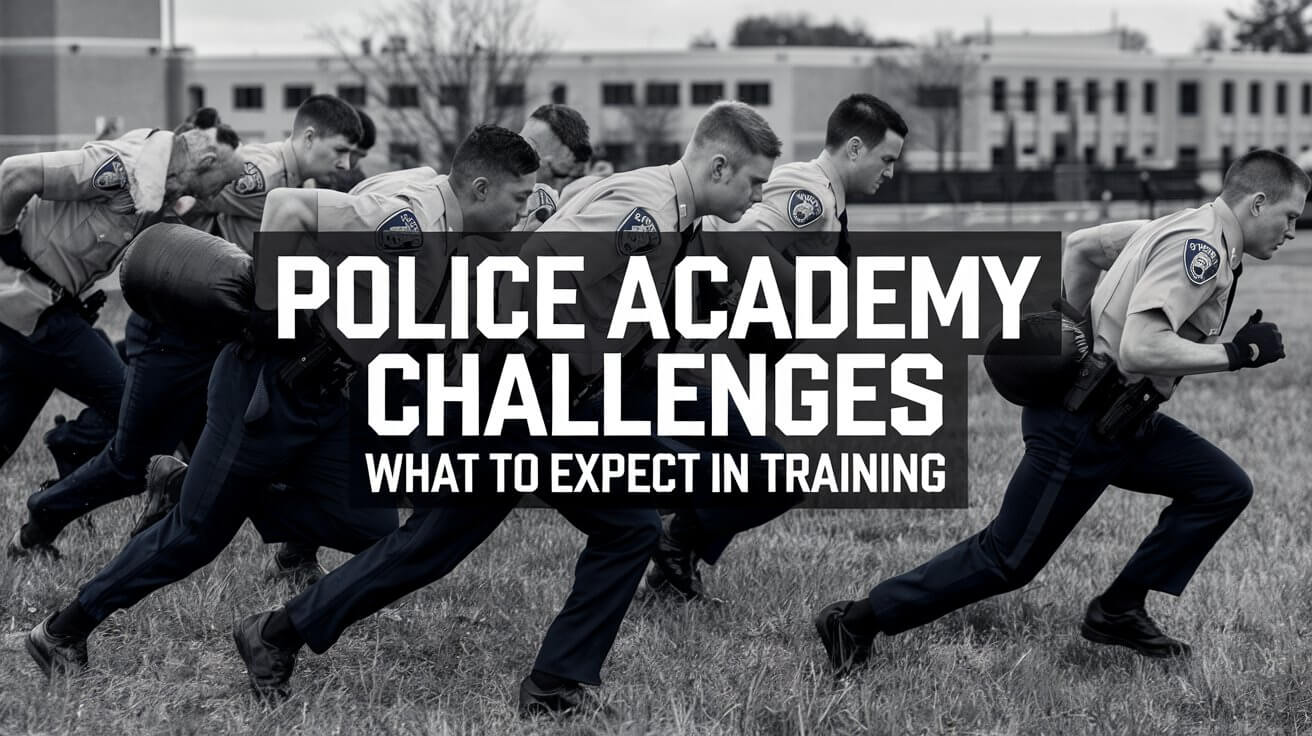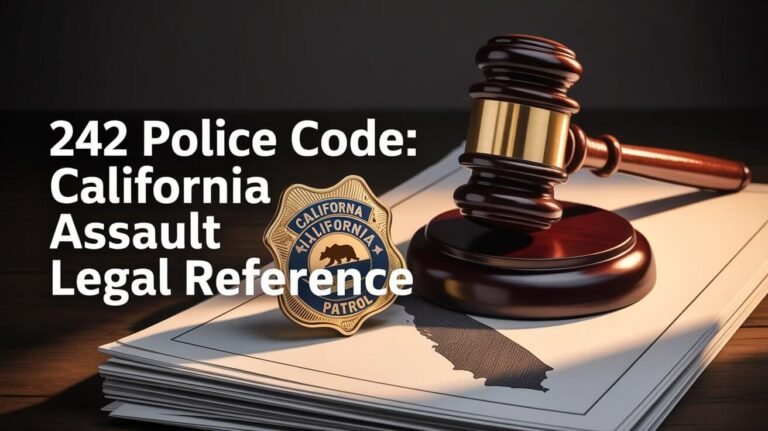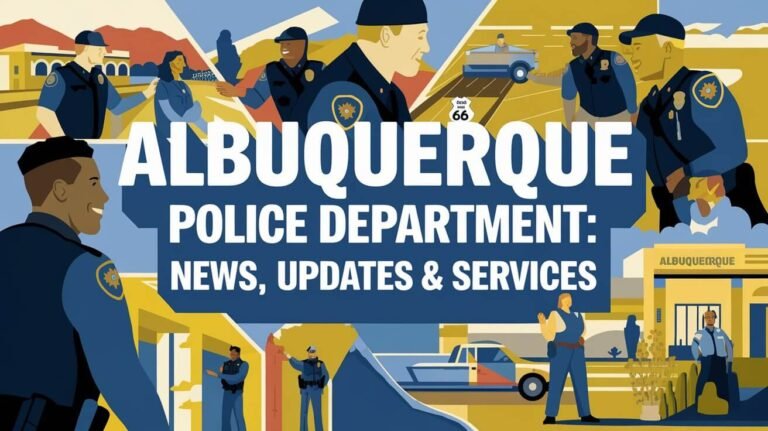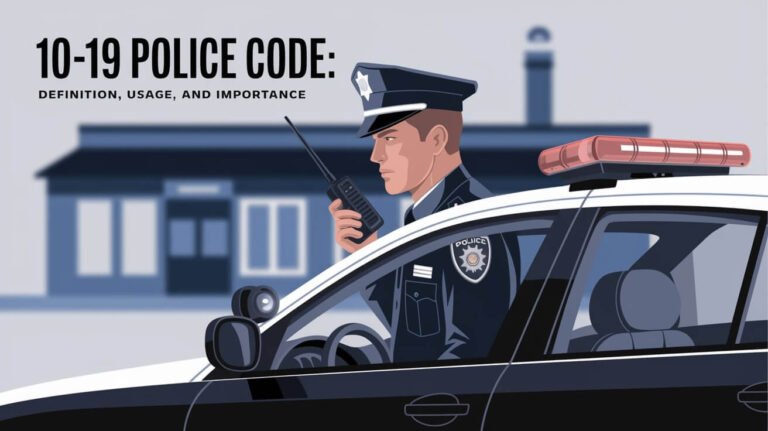Police Academy Challenges: What to Expect in Training

Police academies push recruits hard, testing their minds and bodies. Becoming a cop isn’t easy. New recruits face tough workouts and intense classes. This guide reveals what they go through, from fitness challenges to tough exams. You’ll see what it takes to make it as a police officer.
The Reality of Police Academy Training
Police academy isn’t a walk in the park. It’s a grueling process that transforms civilians into law enforcement professionals. Let’s break down the key aspects that make police academy tough:
Physical Demands
Police academies put recruits through intense physical training. You’ll face:
- Daily workouts
- Long runs
- Obstacle courses
- Strength training
These exercises build stamina and strength needed for police work. Recruits often start their day with a 5 a.m. workout, setting the tone for the physical challenges ahead.
Mental Challenges
The academy tests more than just muscles. It pushes mental limits too. Recruits must:
- Handle high-stress situations
- Make quick decisions
- Stay alert during long shifts
- Manage sleep deprivation
These mental hurdles prepare future officers for the pressures of the job. Instructors often create stressful scenarios to test recruits’ ability to think clearly under pressure.
Academic Rigor
Police academy isn’t all push-ups and target practice. There’s serious studying involved:
- Criminal law
- Constitutional rights
- Report writing
- First aid
- Local ordinances
Recruits must pass written exams on these topics. The academic load can be heavy, with some academies requiring 833 hours of training over about five months.
Common Police Academy Components
To understand why police academy is hard, let’s look at its main parts:
Classroom Instruction
Classroom time makes up a big chunk of academy training. Recruits learn:
- Legal procedures
- Ethics
- Community relations
- Crime scene investigation
These lessons form the backbone of police work. Recruits must absorb and apply this knowledge quickly.
Physical Fitness Training
Fitness is crucial for police officers. Academy training includes:
- Running (often 1.5 to 5 miles)
- Push-ups and sit-ups
- Weight training
- Agility drills
Many academies require recruits to pass fitness tests. Failing these can mean washing out of the program.
Firearms and Tactical Training
Handling weapons safely is a key skill for officers. Recruits spend time:
- Learning firearm safety
- Practicing at the shooting range
- Studying use-of-force policies
This training is intense and precise. Even experienced shooters find it challenging.
Defensive Tactics
Officers must know how to protect themselves and others. Defensive training covers:
- Hand-to-hand combat
- Restraint techniques
- Non-lethal weapon use
These skills are physically demanding and require lots of practice.
Factors Affecting Police Academy Difficulty
Not all recruits find the academy equally hard. Several factors play a role:
Personal Preparation
Those who come prepared often find the academy easier. Good preparation includes:
- Starting a fitness routine months before
- Studying criminal justice basics
- Improving stress management skills
Recruits who slack on preparation often struggle more.
Previous Experience
Prior experience can make a difference:
- Military veterans may find physical training easier
- Those with legal backgrounds might excel in academic areas
- Athletes often have an edge in fitness tests
But even experienced recruits face challenges in new areas.
Academy Location and Duration
Academies vary across the country:
- Some last 6 months, others only 10 weeks
- State police academies are often tougher than local ones
- Live-in academies can be more intense than commuter programs
These differences affect how hard recruits find the experience.
Overcoming Police Academy Challenges
While the academy is tough, there are ways to succeed:
Physical Preparation Strategies
- Start a fitness routine at least 3 months before the academy
- Focus on cardio and strength training
- Practice the specific tests you’ll face (like obstacle courses)
Being in shape from day one gives you a big advantage.
Mental Toughness Techniques
- Learn stress management techniques like deep breathing
- Practice mindfulness to stay focused
- Develop a positive mindset and self-talk
Mental resilience is just as important as physical strength.
Study Tips for Academic Success
- Create a study schedule and stick to it
- Form study groups with fellow recruits
- Use flashcards for key terms and laws
Staying on top of academics reduces overall stress.
Success Rates and Reasons for Failing
Not everyone makes it through the academy. Let’s look at the numbers:
Average Graduation Rates
- Some academies see 30-40% of recruits fail
- Others have higher success rates, around 80-90%
- The national average isn’t clear, but many estimate a 70% graduation rate
These rates show just how challenging the academy can be.
Common Reasons Recruits Struggle
Recruits often fail due to:
- Poor physical fitness
- Inability to handle stress
- Academic difficulties
- Ethical violations
Understanding these pitfalls can help recruits avoid them.
Real Experiences: What Officers Say About Academy Difficulty
Let’s hear from those who’ve been through it:
Surprising Aspects of Training
Officers often mention:
- The mental challenge being harder than expected
- The importance of teamwork
- How quickly they had to adapt to a new lifestyle
These insights give a real-world perspective on academy challenges.
Most Challenging Parts of the Academy
Many officers point to:
- Sleep deprivation
- Constant pressure from instructors
- Balancing physical demands with academic work
These elements combine to make the academy a true test of character.
Preparing for the Police Academy: Essential Tips
Want to boost your chances of success? Try these tips:
Fitness Routines
- Run regularly, aiming for 1.5 miles in under 14 minutes
- Do push-ups, sit-ups, and pull-ups daily
- Include strength training 2-3 times a week
A solid fitness base makes everything else easier.
Mental Preparation
- Practice stress management techniques
- Develop a growth mindset
- Learn to take constructive criticism well
Mental toughness can carry you through tough times.
Academic Readiness
- Review basic criminal justice concepts
- Brush up on writing skills
- Start learning local laws and ordinances
Being academically prepared reduces overall stress.
Beyond the Academy: How Training Compares to Real Police Work
The academy is just the beginning. Here’s how it relates to actual police work:
Applying Academy Skills on the Job
- Physical fitness remains important but in different ways
- Decision-making under pressure becomes a daily task
- Report writing skills are used constantly
The academy provides a foundation, but real-world experience builds on it.
Continuous Learning in Law Enforcement
- Officers undergo regular training throughout their careers
- New technologies and laws require constant updating of skills
- The learning process never really ends
The academy teaches recruits how to learn and adapt, a crucial skill in law enforcement.
Is police academy hard? Absolutely. It’s designed to be challenging, pushing recruits to their limits. But with proper preparation, determination, and the right mindset, it’s a challenge that can be overcome. The difficulty serves a purpose: to create capable, resilient officers ready to serve and protect their communities.
Academy hardships prepare you for a rewarding law enforcement career. The training transforms recruits into professionals ready for police work demands. Your gained skills and strength will benefit your career and life.






